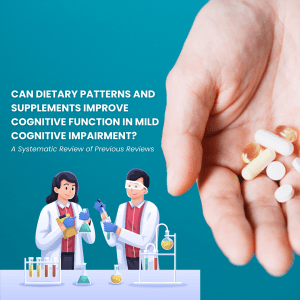MCTs may serve as an alternative source of energy for the brain, particularly in cases of MCI
- Polyphenol-rich food (Blueberries, Grape Juice, Cocoa Flavanols, and Brazil Nuts) may protect against free radicals and neurottective activity though more studies are needed.
- Mediterranean Diet Apparently slows cognitive decline and improves overall brain functioning.






